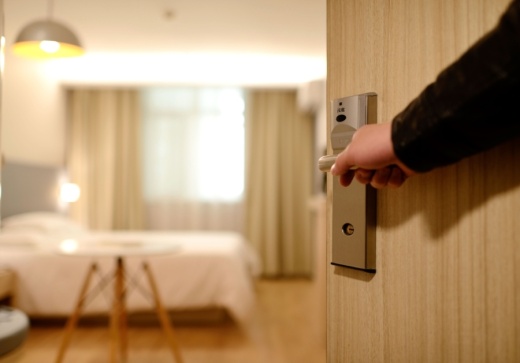If the new ordinance is approved by Houston City Council, it would be only the second of its kind in the U.S., behind Baltimore, said Minal Patel Davis, the Mayor’s Special Advisor on Human Trafficking. The ordinance was discussed at an April 9 meeting of the city's Public Safety and Homeland Security Committee.
Between May 1, 2019 and February 13, 2020, nonprofit Children at Risk tracked over 202,000 unique advertisements for illegal commercial sex in Houston, according to a report shared with the committee. When factoring in recurring ads, the total number increases to over 277,000, most of which advertise for indoor prostitution, at hotels for example, rather than on the streets.
Ensuring collaboration between HPD and local hotel and motel operators requires extensive outreach and monitoring, Patel Davis said.
In some cases, “bad actors” knowingly look past sex trafficking activity to maintain a steady stream of income, said Jamey Caruthers, senior staff attorney for Children at Risk.
In other cases, a lack of education about the issue may cause hotel and motel operators to unknowingly overlook the issue, said Jin Laxmidas, vice president of government affairs for the Small Independent Motel Owners Association. .
“I am one of those accidental hoteliers,” Laxmidas said. “I moved here and got into this industry through people I know... not even realizing there is a greater issue out there. It is very important for SIMA members to be safeguarded against all of these heinous crimes. We run these hotels and live in them with our families.”
In forming the ordinance, the city has been in negotiations with SIMA and similar organizations for over four years.
In the past four years, HPD conducted 269 anti-trafficking operations at 116 hotels and motels in Houston resulting in 674 charges and 74 identified victims, a presentation from Patel Davis and Caruthers stated. Many of these were the result of tips from hotel and motel operators already educated in identifying the signs of trafficking.
However, the total number of hotels in the city–524– indicates some incidences may be going overlooked, Patel Davis said.
“These efforts were effective, but they were scattered,” she said.
As drafted, the ordinance would require all hotel and motel operators to provide the training for employees within 30 days of hiring and keep record that sessions were completed.
The ordinance was developed by the mayor's office with support from Children at Risk and negotiated with hospitality industry representatives, including SIMA and the local branch of the American Hospitality and Lodging Association. Under the ordinance, hotel and motel operators would be provided with free online training resources in up to 15 languages as well as access to in-person training in English and Spanish.
Hotel and motel operators would be fined $100 for failing to train employees, failing to hang signage about trafficking, failure to turn over training records to the city within 72 hours of a request, or if they retaliate against employees reporting them for violations. Second offenses would be $500, citations can be re-issued daily until compliance is achieved, according to the proposed ordinance. Operators have one month to resolve the violations before the fines are issued.
If implemented, the program will cost the city $40,611 upfront and $12,750 yearly to pay for a portion of the salary for a Houston Administration for Regulatory Affairs employee tasked with enforcement. The funds have already been identified within the city’s Administration and Regulatory Affairs budget, Patel said.
Despite the hospitality industry facing furloughed staff and declining revenues due to the coronavirus outbreak, the city is continuing to bring forth the ordinance and representatives of SIMA and AHLA spoke in support of it.
Editor's note: this post has been updated for clarity.





